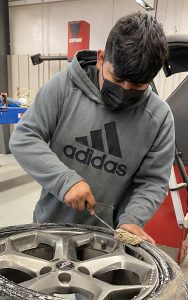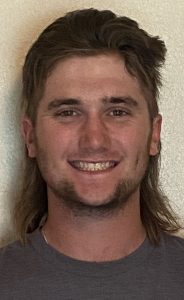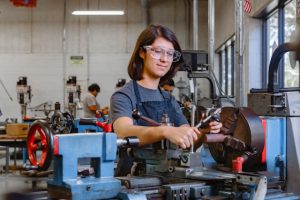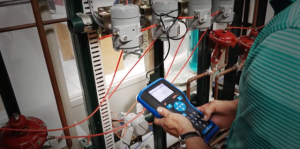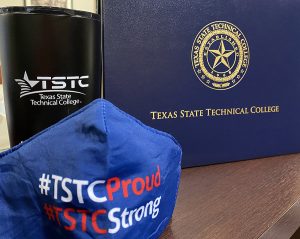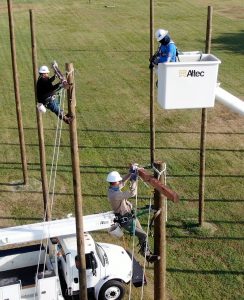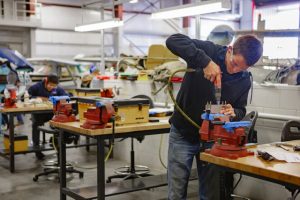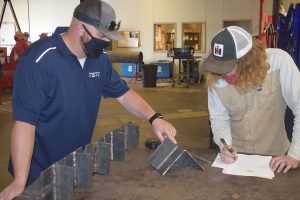(SWEETWATER, Texas) – From an early age, David Lopez-Cortez showed an interest in cars.
The graduate of ATEMS High School knew by the age of five that he wanted to work on vehicles for a living. Lopez-Cortez said his passion started by playing with Hot Wheels toy cars at his childhood home.
Lopez-Cortez wants to turn that passion into a career by earning an Associate of Applied Science degree in Automotive Technology at Texas State Technical College.
“I have always been interested in cars and how they work,” he said. “I did not think it would end up being a career option, but I am happy I made this choice.”
Lopez-Cortez’ love for cars continues after class when he is working at an oil change service in Abilene.
“I am constantly helping people at work and learning what other people do,” he said. “I also have friends who want me to help them with their cars when I am at home.”
TSTC was a perfect fit for Lopez-Cortez, and enrolling was a decision that he easily made, thanks to his mother.
“My mom went to culinary school at TSTC in Sweetwater and was hired as the head chef at the Hilton in Abilene,” he said. “She later opened her own restaurant and is now at home. She is still the best chef I know.”
Lopez-Cortez said his mother told him that TSTC would be a good place to learn a trade.
“She said the environment is small and simple. Everyone on the campus wants you to succeed,” he said of his mother’s time at TSTC. “That has not changed today.”
The biggest difference between his time at TSTC and his mother’s is the style of learning. Lopez-Cortez completed many class assignments online through remote learning. When he is in the lab, things change.
“This is a totally different learning environment. Each of us in class has our own vehicle project and bay,” he said while standing in his bay, preparing to mount a tire.
Lopez-Cortez also likes the class size and attention that classmates receive from instructor Gerod Strother.
“We are always willing to help each other with projects,” he said. “Gerod makes you feel confident in your decisions, but he is also there when you have a problem. He wants you to succeed.”
Strother said Lopez-Cortez and his classmates have shown a passion to learn.
“Everyone is willing to put in the effort to learn to be the best they can. It is good to see these students training to enter the workforce,” he said.
According to onetonline.org, auto technician/mechanic positions will continue to increase in Texas. The online site forecasts that an additional 6,610 mechanics will be needed by 2028.
Lopez-Cortez plans to use his newfound knowledge in Abilene.
“I want to open and own my own performance car shop,” he said. “I know there are marketing and business plans to get ready, but this is preparing me for a career.”
TSTC is setting him up for success, something that Lopez-Cortez did not realize when he started the program earlier this year.
“TSTC offers you all the tools you need for a career, and they even have the tools in the shop you can use to learn the trade,” he said. “This has been the best experience of my life.”
Registration for the fall semester is underway. Scholarships are available. For more information, visit tstc.edu.
